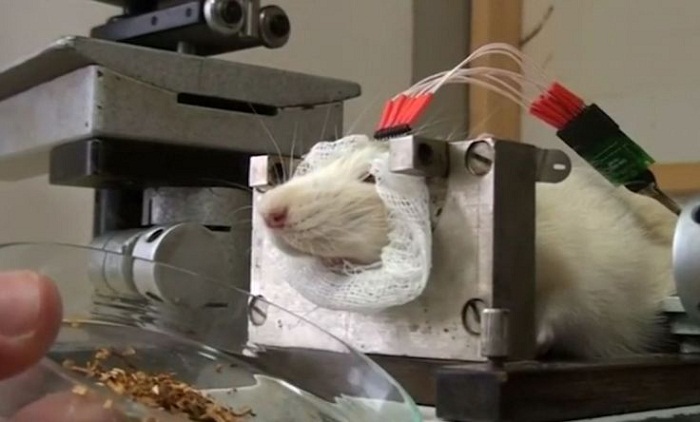Dmitry Medvedev heads the laboratory:
"Unlike a dog, a rat can get through the smallest crack where it seems it couldn`t go. This way it could find its way deep under rubble and by its brain activity one could understand if there are, for example, people who are still alive, if it`s worth clearing debris here or at another place to rescue people more quickly."
Scientists here are using those electrodes to monitor a rat`s brainwaves.
They then can see how an unfamiliar or unusual substance will affect the rodent`s waveforms.
Medvedev says they`ve already determined that rats can differentiate between different types of tea leaves.
But he admits they still have a way to go:
"We can`t say what substance it was by just analysing an encephalogram by sight. We are now trying to work out what substance it was with the help of mathematical analysis."
When that`s been worked out, Medvedev hopes these pocket-sized pals can be adopted out in the real world.
More about:
















































